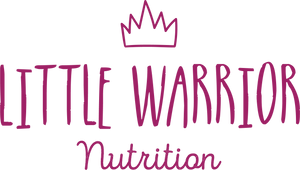Choline has recently been designated an essential nutrient. It works very closely with other B vitamins, helping your body with important functions like detoxification and stress management. The bad news is, most of us aren’t getting enough! Read ahead for more info on why choline is so important for baby and mama, what the best sources of choline are and our recommendations for getting this critical nutrient into your little one’s diet!
Why is choline Important?
- Fat Metabolism: Without choline, fats become trapped in the liver where they block metabolism.
- Nervous System Function: Choline is required to make acetylcholine; an extremely important neurotransmitter required for cells to communicate with each other.
- Prevention of Birth Defects: Choline has been shown to prevent birth defects (like spina bifida) and to promote healthy brain development.
- Lower Stress Levels: New research, published in The FASEB Journal, found that choline can lower levels of stress. The researchers found that pregnant women who ate 930 mg of choline per day had 33% lower levels of cortisol compared to women who ate only 430 mg daily.
What does this mean for your baby? Research shows that babies who are exposed to high levels of cortisol (the stress hormone) in the womb have an increased risk of type-2 diabetes, high blood pressure and stress-related illness later in life. So, choline can lower the levels of stress hormone that passes through the placenta, which can affect the health of your baby in later life. Amazing, right?
And perhaps most importantly, it can even change your genetic expression to promote health and protect against disease (specifically: dementia, cardiovascular disease and certain types of cancer).
Choline is one of the nutrients that protects from this stress response; choline changes the setting of the gene which is responsible for releasing cortisol (its called the CRH gene). The CRH gene is responsible for the stress response.
The Forgotten Nutrient
According to the Institute of Medicine, only 10% of North Americans consume an “adequate” amount of choline. Vegetarians (unless they supplement), are likely deficient. Most prenatal vitamins don’t add choline, so be sure to check for this. The prenatal vitamin we recommend (NFH Prenatal SAP) does include choline.
How Much Choline Do We Need?
Considering the functions listed above, choline is important during pregnancy, when breast feeding, and when introducing first foods. See the tables below for the Adequate Intake by age groups, but keep in mind that these are the minimum levels and do not represent the therapeutic amounts used in studies. For example, the women in FASEB study mentioned previously, were receiving nearly twice the Institute of Medicine’s recommendation for choline.
Shooting for the goal of 500 mg of choline is a great place to start. Eating two eggs in the morning (around 350 mg of choline), plus 5 ounces of chicken (125 mg of choline) and you're almost there!
Adequate Amounts of Choline
0-6 months: 125 mg/day (~18 mg/kg)
7-12 months: 150 mg/day (~17 mg/kg)
1-3 years: 200 mg/day
4-8 years: 250 mg/day
9-13 years: 375 mg/day
14-18 years (boys): 550 mg/day
14-18 years (girls): 400 mg/day
19 years + (men): 550 mg/day
19 years + (women): 425 mg/day
Pregnancy: 450 mg/day
Lactation: 550 mg/day
Best Sources of Choline
The richest sources of this vital nutrient are liver, beef, eggs, poultry and seafood. Here is the average choline content in some of these foods:
Beef liver (3 oz - 355 mg)
Chicken liver (2 oz - 247 mg)
Sardines and mackerel (3 oz - 188 mg)
Eggs (1 large - 172 mg)
Beef, cooked (4 oz - 124mg)
Chicken & Turkey (4 oz - 97 mg)
Scallops & Shrimp (4 oz - 92 mg)
Unfortunately, most plant foods contain very little choline, so vegetarians may be at risk for deficiency. The richest plant sources are collards, Brussels sprouts, broccoli, crimini mushrooms, asparagus and cauliflower (although these foods provide only about 17-60 mg per cup).
How to Include Choline in Your Baby’s Diet
Egg yolks are full of choline and we often recommend this as one of the best first foods to introduce to your baby. Some choline may be lost if you overcook the yolk, therefore we suggest a soft boiled yolk to ensure maximum nutrient content. We recommend boiling the egg for about five minutes before running it under cold water and removing the yolk from the white. Add a pinch of Celtic sea salt and/or a tsp of ghee and you have a creamy texture to feed with a spoon!
Check out the following Q&As for more info; "What is the best way to introduce eggs to my Baby?" and "Are there any dangers to feeding my baby undercooked egg yolk?"
**This is not the time to opt for the discount eggs! We can’t stress enough the importance of using a high-quality egg; aim for pasture-raised, organic eggs as this makes a huge difference in terms of the nutrition and safety.

